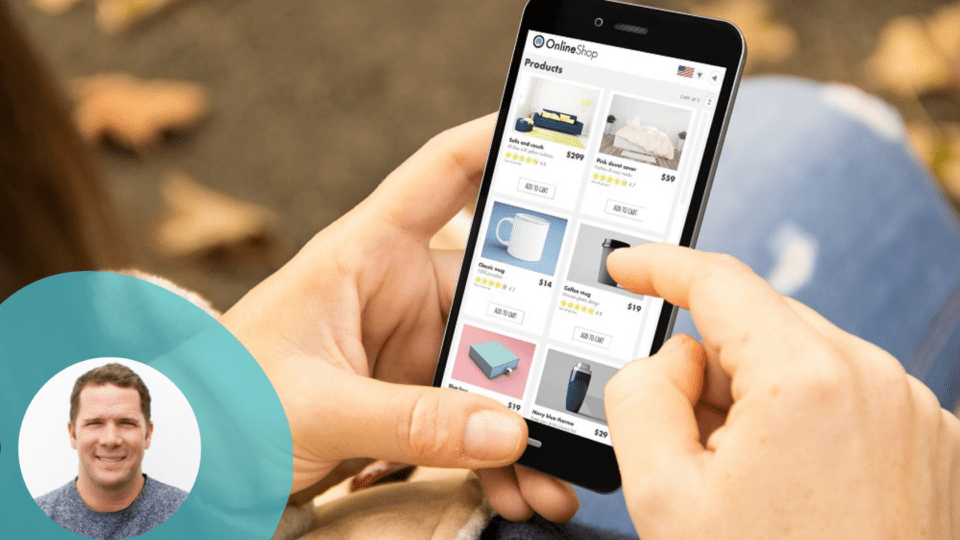Despite global economic concerns, consumer spending has remained robust throughout 2023, and retailers are looking forward to a blockbuster Q4 full of holiday spending. That said, in a challenging economic climate the pressure is on to make the most of every opportunity — and a lot of retailers are unaware of significant problems within their ecommerce programs that are going to cost them sales and reduce their margins.
At the same time, retailers are acutely aware that ecommerce sales are continuing to grow as a percentage of overall holiday spending and, within that percentage, mobile sales in particular are skyrocketing. eMarketer expects retail mobile commerce sales to account for 43.4% of total retail ecommerce sales in 2023. In 2024, mobile commerce sales are expected to hit $534.18 billion, up from $415.93 billion in 2022.
With consumer holiday spending expected to defy economic uncertainty and grow to $1.328 trillion this year, and with mobile expected to be the fastest-growing segment of those sales, it’s clear that retailers need to be ensuring that their mobile experiences are ready for prime time going into Q4. Unfortunately, many are not. Let’s discuss where the biggest lost opportunities are hiding, and how retailers can fix the problems before holiday spending kicks into full gear.
The Inherent Messiness of Mobile
For a growing number of consumers, mobile commerce is the new standard, particularly when it comes to Q4 holiday and gift shopping. For retailers, however, mobile is messy. A tremendous amount of mobile traffic and transactions are lost to broken mobile experiences — likely more today than ever before. That’s due to the growing complexity of how traffic gets routed to mobile apps, whether that’s via social commerce, affiliate links, influencer content, CRM marketing or some other means.
In fact, on the company’s Q2 2023 quarterly earnings call, Pinterest CEO Bill Ready addressed this issue directly. Ready shared that for the back half of the year, Pinterest will be focused on providing a more seamless user experience for retailers and consumers by expanding the availability and integration of its mobile deep linking (MDL) capability. He noted that MDL provides a “seamless one-click handoff,” creating an improved and simplified user experience, and flexibility for retailers to gain customers.
To truly prepare for a strong Q4, mobile deep linking needs to be a core part of brands’ mobile commerce strategies. Marketers must ensure their links work effectively, whether traffic is coming from creators and influencers (who get screwed if you don’t fix this), from paid channels like affiliate and social, or from their own channels, including CRM.
From the consumer side, you’re probably familiar with broken mobile experiences. How many times have you clicked on a link, with purchase intent, only to be routed to a page not optimized for a mobile transaction? Or perhaps you’ve been sent to a mobile browser and been prompted to log into a retailer’s site when you already have that retailer’s app installed and signed into on your phone? The mobile web forces you to either remember a password you’ve long forgotten or enter in all your payment and shipping details. In the world of mobile commerce, these misdirects, dead links and extra steps required to make a purchase are all it takes for a consumer’s conversion rates to plummet to zero.
The current mobile reality is one of broken mobile experiences, lost attribution and deep links failing to work consistently. However, because of the growing complexity of scenarios that feed the mobile commerce pipeline, a lot of retailers have little awareness that any of this is happening beneath the surface.
That’s because when teams go to check traffic and conversions from the various channels that drive mobile commerce, they see activity. But remember: Even a broken clock is correct twice a day. In other words, there’s a good chance some of the experiences within a given channel are working as desired “sometimes.” But traditional reporting means aren’t going to show you the ones that aren’t. Those opportunities are just “missing.”
Repairing the Broken Mobile Experience Problem
For retailers looking to get a handle on their mobile commerce reality before holiday spending ramps up, the first step is to find your blind spots.Mobile traffic comes from a wide variety of sources, and each one has potential points of failure.
For example, traffic from influencers originates across a variety of different sources, with organic posts by influencers on social media accounting for the majority of traffic. In these environments, the potential problems can include anything from in-app browser friction to linking to products where inventory is sold out to pages not existing within an app. Given the vast number of influencers, coupled with the vast number of product pages on retail sites and apps, mapping (and checking) all permutations is a formidable (if not impossible) task to accomplish manually. However, kicking off an audit with some spot checks from a user standpoint to see where broken experiences are encountered can be enlightening.
Ultimately, retailers need to map out and test their mobile experiences to ensure they’re delivering the kinds of shopping experiences that they want for themselves. By employing MDL and tools that can identify where things break from a customer experience or attribution standpoint and then routing users around that pitfall, retailers can deliver the best possible buying experience while maximizing ROI and visibility within their campaigns. Ultimately, the insights revealed during this process can also be put to use optimizing spend toward the highest-value channels.
Are your mobile commerce experiences ready for the biggest Q4 spending spree of all time? If not, now is the time to make the fixes that will ensure a very happy close to 2023.
Michael Jaconi is the Co-founder and CEO of Button, the mobile commerce technology company that is powering a commerce-driven internet. Jaconi formerly served as the CEO of Rakuten Loyalty and Executive Officer of parent company Rakuten.




